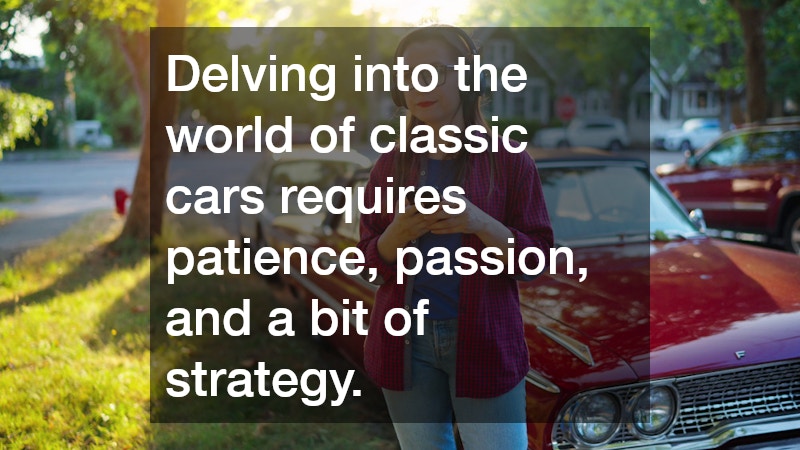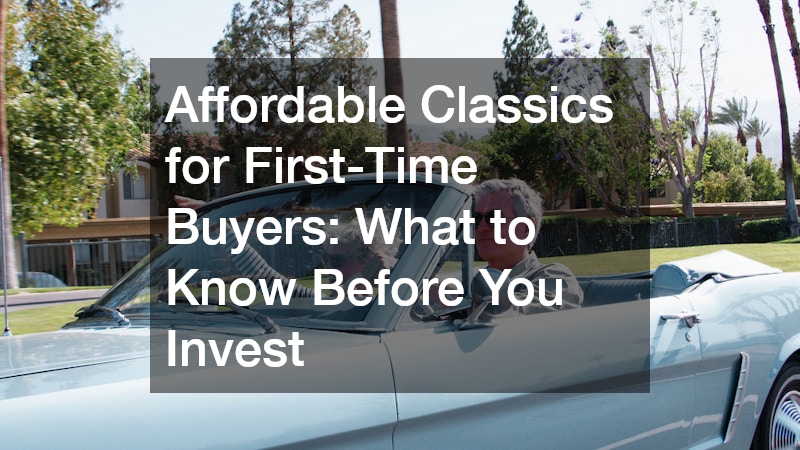Affordable Classics for First-Time Buyers: What to Know Before You Invest
Understanding the appeal of classic cars and the considerations for first-time buyers can be a rewarding journey. Delving into the world of classic cars requires patience, passion, and a bit of strategy.
What Makes a Car a ‘Classic’ and Why Invest in Them?
Defining a ‘Classic’ Car
A classic car is defined by several criteria, most notably its age. Typically, a car must be at least 20-30 years old to be considered a classic, though historical significance and rarity can also play crucial roles.
Beyond mere age, a vehicle may be defined as a ‘classic’ if it holds a particular significance in automotive history. This could relate to its revolutionary technology at the time of production or its impact on automotive design.
Rarity further intensifies a car’s classic status, with limited production numbers often increasing desirability. This combination of age, historical significance, and rarity makes classic cars attractive investments.
Reasons to Invest in Classic Cars
There are multiple reasons why enthusiasts continue to invest in classic cars today. One primary motivation is the potential for significant appreciation in value over time, making it a potentially lucrative investment.
Owning a classic car also opens up a world of exclusive community events and car shows. These gatherings allow owners to share their passion and showcase their automotive treasures with like-minded enthusiasts.
Beyond the financial and social aspects, personal satisfaction plays a substantial role. Many buyers derive incredible pleasure from restoring and owning a piece of automotive history, relishing the nostalgia and unique driving experience classic cars offer.
How to Choose the Right Classic Car for You?
Assessing Your Budget and Preferences
Before investing in a classic car, it is vital to establish a reasonable budget that aligns with your financial situation. Aspiring classic car owners should consider initial purchase costs, potential restoration, and maintenance expenses.
Once a budget is set, identifying personal preferences is the next step in choosing the right classic car. This involves considering factors such as brand affinity, preferred era, and whether you wish to participate in vintage racing, shows, or use the car for leisure driving.
A clear understanding of your budget and preferences creates a foundation for narrowing down the array of options in the classic car market. By focusing on cars that truly resonate with your tastes and financial constraints, you can avoid impulse buying.
Researching and Evaluating Options
Thorough research is crucial when investing in classic cars, as it minimizes the risks of unexpected costs and ensures a wise purchasing decision. Prospective buyers should research various models, seek expert opinions, and delve deeply into automotive forums for insights.
The evaluation process should include assessing the market demand for specific models, the availability of parts, and the current condition of the vehicles. Consideration should be given to the car’s provenance and any documented history of restoration work.
Interest in classic cars can be significantly influenced by market trends, underscoring the importance of keeping a watchful eye on the automotive market’s ebb and flow. The right research enables potential buyers to identify worthwhile investment opportunities and uncover genuinely exceptional vehicles.
What Are the Hidden Costs and Risks of Buying Classic Cars?
Maintenance and Restoration Costs
Maintenance and restoration can represent significant expenditure for classic car owners, often requiring specialized skills and parts. The scarcity of parts can make these projects costly and time-consuming endeavors.
It is not uncommon for a restoration project to take several years to complete, emphasizing the importance of patience and dedication. When budgeting for a classic car purchase, keep restoration costs in mind to avoid financial strain.
Regular maintenance is equally essential to preserve the car’s condition and value. Many owners consider joining clubs and communities to exchange advice and recommendations on cost-effective restoration solutions.
Market Fluctuations and Depreciation
Investing in classic cars is not without financial risks, as market fluctuations can impact the value of these vehicles significantly. The market’s dynamic nature requires potential buyers to be aware of possible depreciation.
External factors, such as economic downturns or shifts in collector trends, can affect the desirability and value of classic cars. Wise investors stay informed about these variables to avoid unpleasant surprises.
Staying abreast of industry insights and market trends helps investors anticipate and react to potential market downturns or volatility. Striking a balance between passion and practicality is key to successful classic car ownership.
Conclusion
In conclusion, investing in classic cars is an endeavor filled with both excitement and intricacy. Prospective buyers must approach the venture with a well-informed perspective, taking into account the appeal of classic cars and associated considerations.
By carefully weighing factors such as budgeting, personal preferences, and market research, first-time buyers can make informed decisions. Recognizing the potential pitfalls and hidden costs is vital to ensuring a satisfying and financially wise investment experience in the world of classic cars.

